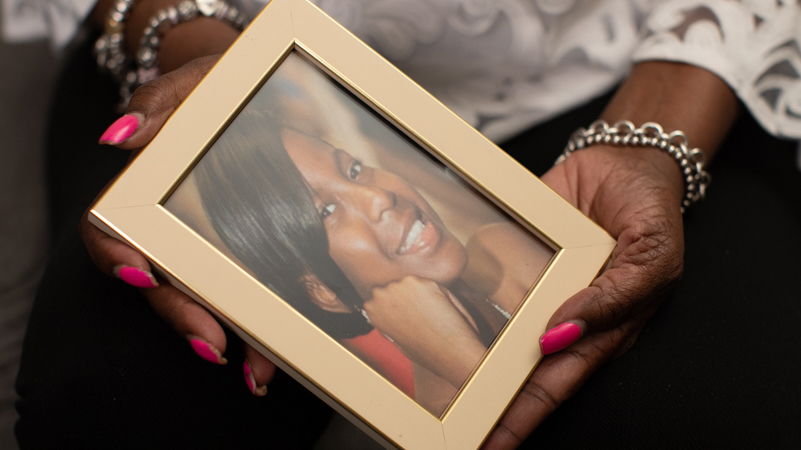How Review of Police Data Verified Neglect of Missing Black Women
For the last two decades, two thirds of all missing persons cases in Chicago have been Black people, and about 30 percent of all missing persons cases are Black girls and women. But Chicagoans from the Black community say that the police response to this crisis not only fails families with an inadequate response, but that police officers sometimes mistreat family members or delay the cases.
A Chicago journalism nonprofit, Invisible Institute has been collaborating with HRDAG since 2017 to advance police accountability on other projects. This long and fruitful collaboration began with Beneath the Surface, an examination of gender-based violence by police. The missing persons project was born of Beneath the Surface, which discovered more than 50 misconduct complaints alleging that officers had refused to accept, mishandled, or even prematurely closed reports.
In 2023 our collaboration focused on the missing persons problem. In this project, HRDAG data scientists Bailey Passmore and Tarak Shah have been working with the Institute to examine police records from at least six FOIA requests, as well as records from other agencies such as the Office of Emergency Management & Communication and the Cook County Medical Examiner. Bailey and Tarak have discovered instances of inaccurate record keeping, from data entry errors to what seem like deliberate obfuscations.
Bailey, who’s worked very closely with the data, says, “In the missing persons report data, outcomes of reports are obscured through a combination of very old, insufficient reporting materials and guidelines, conscious data generation decisions made by CPD, disagreement between officers about how to process the reports, and a general regard as ‘low priority.’”
One specific practice that has yielded discrepancies in the data is the use of the “Non-Criminal” label used in paperwork. The HRDAG and Invisible Institute team reviewed all available case records for several dozen widely-reported missing persons cases from 2000-2022 and was able to identify a total of 11 cases that were classified as “Closed Non-criminal” even though a homicide case had been opened for the missing. The team was also able to identify four cases in which the Chicago Police closed the missing persons case before the person was found, including two cases where the Black teenage girl was subsequently found murdered.
Further readings
Chicago Sun Times. 6 June, 2024.
Hundreds march to demand more help finding Black girls and women who are missing — but never forgotten.
The Pulitzer Prizes. 8 May, 2024.
“Missing in Chicago” wins Pulitzer Prize for Local Reporting 2024
Chicago Reader. 7 May, 2024.
Chicago mayor, alders propose missing women task force as CPD continues to sideline families.
Park Center for Independent Media. 2 May, 2024.
“Missing in Chicago” wins Izzy award
WTTW. Paul Caine. 29 November, 2023.
New report raises questions over CPD’s approach to missing persons cases
Related publications
HRDAG Tech Note. Trina Reynolds-Tyler, Bailey Passmore, Larry Barrett, Tarak Shah. 17 July, 2025.
Chicago Missing Persons: The Data Series.
Significance. Bailey Passmore + Larry Barrett. 27 May 2025.
Shots fired: Can technology really keep us safe from gunfire?
City Bureau + Invisible Institute. Sarah Conway + Trina Reynolds-Tyler. 14 November, 2023.
Missing in Chicago
Chicago Reader. Sarah Conway + Trina Reynolds-Tyler. 14 November, 2023.
What happens when your loved one goes missing?
HRDAG. Trina Reynolds-Tyler. 15 October 2019.
Reflections on Data Science for Real-World Problems
Related videos + podcasts
7th annual “We Walk For Her” march brings attention to missing, murdered women, girls of color | ABC 7 Chicago | Tre Ward | 2024 (2 min)
#589 Chicago Missing Persons Project | Chi Hacknight | Trina Reynolds-Tyler and Sarah Conway | 2024 (50 min)
Izzy Award 2024 Honors Human Rights and Economic Justice Reporting | Park Center for Independent Media | Trina Reynolds-Tyler and Sarah Conway | 2024 (56 min)
The Community Built a Model: Using Participatory AI to Analyze Chicago Police Data | FAccT ‘23 Keynote | Tarak Shah with Trina Reynolds | 2023 (50 min)
Acknowledgments
HRDAG was supported in this work by MacArthur Foundation, Ford Foundation, Heising Simons Foundation, and Open Society Foundations.
Photo by Natasha Moustache.
See more from criminal legal reform

